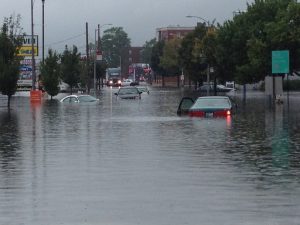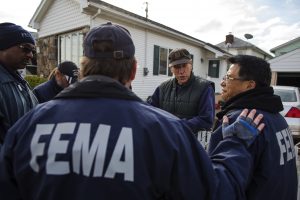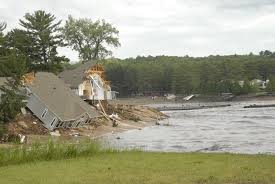Q&A with Insurance Expert Tim Davis
What are the most significant Weather Related Risks for Small Businesses?
What’s the biggest mistake small business owners make when it comes to safeguarding their businesses from weather-related interruptions and why is that a problem?
The biggest mistake small business owners make is failing to buy business interruption coverage. This coverage is not a stand-alone policy, but is typically included on a business owners’ package (or BOP) policy. The Hartford has some of the best coverage available on their business interruption coverage as a part of their BOP policy, but several other carriers offer great coverage as well.
How can we know if we need flood insurance in addition to business interruption coverage?
Flood insurance will not only provide coverage to replace the damage to your building, but the business interruption coverage won’t respond for flood-related losses if you don’t have flood insurance in place.
What’s a common misconception about business insurance related to weather issues and what’s the truth?
As highlighted above, business interruption coverage won’t apply to all weather-related issues. Whatever peril (or risk) caused the business interruption must be a covered peril on the BOP policy. If an earthquake caused the damage and interrupted your business, but you didn’t have earthquake coverage on your policy, then coverage for the earthquake damage wouldn’t exist.
Another common myth centers around off-premises power failure. If a weather-related event causes power to fail at a location away from your business (like a blackout or a transformer a mile away gets struck by lightning) … business interruption coverage won’t apply. With most policies, the weather-related cause of the power failure must happen at your business.
Do we need special coverage to protect from wildfires, or will traditional property & casualty cover us? Why or why not?
A wild fire would be a covered cause of loss on many commercial property policies, but it is not guaranteed. I would recommend reading over your policy – identify covered causes of loss as well as exclusions in the policy.
What kind of protection do we need related to employees and customers who might be injured on our premises during a weather event?
Your standard workers compensation insurance (for employees) and general liability insurance (for your customers) policies should suffice. These two policies should be enough to protect your business from incidents that occur on your premises.
What documents should we be sure to store safely to make the claims process go faster after a weather disaster strikes? Please describe each document and why it’s important.
Financial records will be the most helpful piece of information to provide to simplify the claims process. Carriers will evaluate the income losses your company sustained based off the company’s past sales history and reasonable projections of your company’s profits and losses for the time your company suffered from the weather-related interruption. Policy information – including agent and carrier contact information. Also, it is good to take pictures of the equipment in a building – including serial numbers. This helps with replacement parts and valuation.
What phone numbers should we keep on hand in the event of a weather emergency and why?
Make sure you have either your insurance agent’s number on hand, or (even better) the claims reporting phone number for the insurance carrier on your business owners’ package policy. I would also consider having phone numbers for emergency response/clean up companies. In the event of a major weather event, it is smart to have a few companies to choose from – maybe even consider a company from a neighboring community so that they are less likely to be impacted by the same weather event.
What’s the first thing we should do if our business is impacted by a weather event and why?
Life safety is the very first concern – make sure that all employees and guests at your premises are accounted for and safe. Then, secure your building and business personal property. If you can help prevent further damage by taking additional steps, those extra expenses can be covered in some policies.
What else should small business owners know about preparing for and responding to a weather disaster?
A proper BOP policy with business interruption coverage will provide a real sense of relief in the aftermath of a disaster. Loss of business income is the #1 reason that most businesses do not open after a serious loss. This coverage will help provide coverage for the actual income loss sustained; the net income (net profit or loss before income taxes) that would have been earned over that period; and provides costs for things like payroll so you can keep your employees while your company rebuilds. Be prepared – think ahead – develop a contingency plan. If something happens, have a plan already in place and make sure that everyone in the business is aware of what steps to take.
What other questions should I ask my agent about this coverage?
Check the time period you have for extended business income. Thirty days is standard coverage, but some carriers can offer up to 12 months by endorsement. Also ask your agent if you need contingent business interruption coverage — this pays out when your company is unable to operate because of an event like a natural disaster that damages the business of one of your suppliers or customers, which causes your company to lose income.




